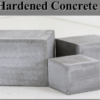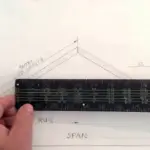Glass Block, also known as glass brick, is a building component made from glass. The appearance of glass blocks can vary in color, size, texture and shape. Glass blocks give visual appealing look after conceding light.
The present-day glass block was developed from pre-existing prism lighting principles within the early 1900s to supply natural light in manufacturing plants.
Nowadays glass blocks are utilized in walls, skylights/ Light Ventilators, and sidewalk. Glass blocks are created from two shape glass items, that are melded air-tight at tall temperature. Cooling results in low pressure in the cavity, heat and noise transmission are increased; condensate formation is hindered. Solid glass blocks also known as glass brick.

Uses of Glass Blocks
Well, there is plethora of uses of glass block today from freestanding walls to bathroom uses, shower enclosures, and so on. However, the most popular use of glass block is shower enclosure. So, imagine a beautiful shower made out of glass block that feels like awesome design that lets the light in.
It let you get nice and sturdy wall that has a wavy design you can easily use for windows next to Jacuzzi for the bathroom. It lets natural light in but nobody can tell you who’s in the Jacuzzi.
There’re also glass block types that you could use as a disco floor. It would have the lights coming up underneath and its strong enough to bear tons of weight.
Typical applications include:
- Observation Units
- Sports Centers
- Building Entrances
- Medical Centers and Hospitals
- Light walls in warehouses, manufacturing facilities or workshops.
- Libraries
- Security zones in industrial plants, airports, power stations etc.
- Public Buildings
- Computer Centers
- Prisons and Detention Centers
- Banks and Financial Institutions
- Universities and Colleges
- Cellar windows

Advantages & Disadvantages:
Advantages:
Thermal Insulation: Glass Block walls assist with lessening the over-heating of inside spaces brought about by the infiltration of daylight throughout the late spring months, while likewise allowing the low-lying winter sun to make a top-level input to room warming. The thermal conductivity coefficient of Glass Block windows is similar with this property in ordinary two-fold frosting units.
Sound Insulation: Elements, for example, mass and the interior air space ensure that glass blocks offer a significant degree of sound protection, indeed, even better than that of block facades of indistinguishable thickness. This makes Glass obstructs the favored material even in exceptionally loud conditions (discos, fabricating offices, and so forth) since they can consolidate ideal protection with innovativeness and style. The boundary that actions acoustic protection is the sound protecting power. Glass Square developments are ideal arrangements where a serious level of protection against airborne clamor is required.
Light Conductivity: Light conveyance in light-coordinating Glass Squares can be changed by an inside kaleidoscopic design to coordinate the light toward the roof. The roof ought to be splendid and unstructured. The squares have an engraving engraved in the top to show the legitimate establishment position.
Transparency: Transparency, one of the main highlights of glass blocks, makes various impacts comparable to the numerous potential blends that can be made utilizing various examples, shapes, gets done and colors. The level of straightforwardness of the Glass Square not entirely settled by the kind of Glass Square utilized. Anything that the necessities, for all intents and purposes any level of perceivability security is conceivable:
From clearly see Glass Squares with plane parallel surfaces giving straightforwardness from the interior without any major twists
- To decorative blocks which make object identify the difficulty.
- Glass Block which just produce a diffused light and don’t allow any structure acknowledgment.
Light Transmittance: Glass Square dividers have a serious level of light conveyance. For in an upward direction episode light, the conveyance can be up to 75% (straightforward Glass Squares), contingent upon the example of the square, and subsequently compares to that of ordinary twofold frosted windows. With bronze-colored Glass Squares, the light conveyance is approx. 49%.
Resistive Properties
Glass block has resistive properties of the flowing:
- Bullet resistant
- Graffiti resistant
- Earthquake resistance
- Fire resistant
Security: Glass Block walls provide high levels of security.

Disadvantages:
- Glass blocks walls are clear walls for both indoor and open discuss utilize. They should not be seen either as windows or substitute windows, but instep as a free building component with a fundamental verbalization which figures basically within the nearness of a structure.
- Glass Blocks walls are not supporting loads and can’t be expected to bear any load from the structure. To this conclusion Glass Square sheets need to be related with the leftover portion of the structure in a way which would not expose them to any restricting powers. Subsequently, they got to be encompassed by expansion and sliding joints, the capacity of which ought to not be blocked by the utilization of distinctive materials (e.g., mortar). The advancement and sliding joints ought to be executed meticulously. Failure to do this might bring almost the breaking of the Glass Squares afterward on.
Construction Guidelines:
- Glass Blocks walls are not load-bearing walls and may not be permitted to accept any extra loads from the superstructure.
- Glass Blockwalls must be backed on at slightest two inverse sides in such a way that the even loads from the wall can be safely transmitted.
- The supporting structure of glass panels or glass blocks must be capable of supporting all loads.
- Glass Block walls do not carry dead loads on it rather than their own weight.
- Structural Opes members must to be built on suit Glass Brick dimensions.
- The complete surface of the Glass Square ought to be seen and not covered up by other wraps up e.g., mortar, tiling or channels.
- Extension and slip joints must be executed fastidiously to secure the board from unacceptable loads. Disappointment to do this may result in future splitting of Glass Blocks
- Satisfactory assurance and bracing must be given amid and after development until the divider has completely set.

Installation techniques
They also not only have the different sizes and styles but now they’re coming up with different techniques for installing glass block. Following are the techniques you can use to install glass block wall:
- Using mortar – that helps fight mold
- Silicon system
- Frame system
The most traditional is using our standard mortar mix except for the fact that today’s glass block mortars they’ve also included fungicides and anti-bacterial materials right in the model.
If you want to use glass blocks for shower installation, you don’t have to worry about annoyance as a mold that can grow along tile in between the grout.
There’s also a silicone system. In such, you can use something as simple as silicone out of a tube. The silicon is going to bond glass stones together. This is the most appropriate method to be used on an interior application.
Anyhow, a new system that’s coming out that I want to tell is totally free of any kind of bonding material. This type of glass block construction is very easy to do. You just have to take your runners screw into the floor and into the walls. You will set glass block with little divider pieces in between. The divider will put the pieces tightly together. Then there’s a horizontal piece that has a little metal tab up at the top that locks glass block right in to a bracket.
So you see there’re different methods of installing glass blocks. It all depends on the application and on the look that we need.
Things you need to install glass blocks
Here’re your supplies you need to install freestanding silicon glass block wall:
- RAM set
- Standard wood screws
- Drill
- Silicon base
- Battery-operated caulking gun
- Bubble level
Size – Thinner glass blocks – an innovation
One of the great products that have been developed over the last year has actually been thinner glass blocks or showers walls and bars.
The standard glass block is 3 and 7/8 or approximately 4 inches thick. On the other hand, a thinner glass block is 3 and 1/8 inches thick. The advantages of the thinner block are several.
- One of very obvious advantage is that it actually cost less money. It can be more cost effective than a thicker glass block.
- Another advantage can be the weight. A lot of people are concerned about how much a shower wall may weigh in their bathroom. But with thinner glass blocks you don’t really need to do that.



















